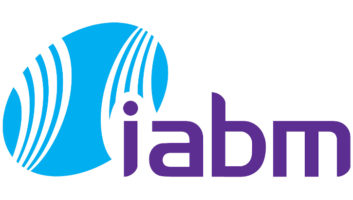 The media technology industry is facing a shortage of industry components.
The media technology industry is facing a shortage of industry components.
Factory shutdowns during the pandemic caused shortages across the electronic components industry, affecting automakers, mobile device manufacturers as well as broadcast and media technology companies. To try to determine how widespread the problem is, the IABM, an international trade association for broadcast and media technology, recently conducted a survey across its membership of media technology suppliers asking for their direct experience with potential shortages of electronic components.
The survey yielded 130 responses from companies both within the U.S. and internationally and found that 40% of its member companies reported severe shortages while 45% were facing moderate shortages. Only 15% of respondents said they were seeing mild issues.
The IABM took this to mean that every company that responded said they are experiencing some level of problems in obtaining components.
“The worldwide shortage of electronic components … is also having a significant impact on the broadcast, media and entertainment technology industry,” said Lorenzo Zanni, head of knowledge at IABM. “We undertook this international survey because some of our members indicated that they were having problems sourcing components; these survey results, which were given to us by members in every geography, clearly show that this is an international problem.”
The survey revealed that 43% of those who responded said they were struggling to obtain chips in particular. Broken down between logic chips and memory chips, 13% of those respondents said memory chips were the specific item they were unable to obtain while 11% said they were looking for field-programmable gate arrays or FPGAs. Other items that were in demand included assemblies and subassemblies — including workstations, motherboards and printed circuit boards — followed by oscillators, GPUs, CPUs and small-form factor pluggable transceivers or SFPs. Fifty-six percent of all respondents reported shortages across most of these component categories.
The survey also found that geography is playing a role. Twenty-six percent of the respondents identified Asian Pacific countries as the source of supply trouble — although a majority saw this shortage as an international problem with supply issues appearing nearly everywhere components are manufactured.
What next? The survey asked respondents what steps they were taking to mitigate the effects of these shortages; 40% said they are finding alternative suppliers or spreading orders across several manufacturers with 31% either ordering large stocks of supplies or paying more for components. Of those surveyed, 19% say they are managing customer expectations successfully and 10% are simply waiting for the market to improve.
There doesn’t seem to be an easy fix for this issue, Zanni said. “[G]iven the difficulty in obtaining some of the rare raw materials and the fact that you can’t suddenly switch up production to meet demand, [this problem] looks likely to be with us for some time to come.”
One solution proposed by the IABM is the BaM Stock Exchange, a database that will allow IABM member companies to search for and find high-demand components. The goal is to help IABM members to obtain the parts they need or reduce their unused stock overhead.
The exchange is searchable and filterable in an effort to help a company connect with a company with extra stock. Most media technology companies do hold some stock of components, including those that they may no longer use, said Peter White, IABM CEO. “Since many components are common across broadcast and media tech suppliers, it makes compelling sense to use the industry’s independent, international organization as an exchange,” he said, adding that idea came from a conversation with Grass Valley CEO Tim Shoulders.
“IABM is committed to building and sustaining a thriving global media tech community and this kind of initiative plays perfectly with that mission,” White said.







